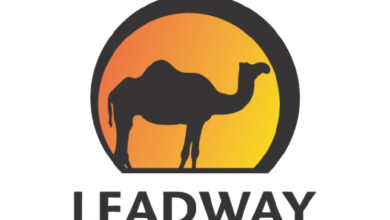Assessing Impact of Russia-Ukraine War On Global Insurance Market

EDET UDOH
As the impact of Russia-Ukraine war continues to hit hard on the global economy, the global insurance market is also affected.
Market analysts said the war-related claims may rise to about $36 billion if the hostilities continue without peace.
According to S&P Global Market Intelligence analysis, the global insurance industry disclosed roughly $1.3 billion in collective losses and reserve charges related to the Russia-Ukraine war in the first quarter of 2022.
Insurers and reinsurers in Europe were hit particularly hard, with some signaling that losses may impact future earnings as well as incurred but not reported reserve holdings as the situation escalates.
Swiss Re AG sustained the largest war-related impact among European insurers with a $283 million reserve hit for potential claims.
During an earning call, Chief Finance Officer, John Dacey warned that some war-related claims were likely to get worse the longer the conflict continues, particularly in the credit and surety business line, which covers nonpayment for goods and services.
Swiss Re expects the ultimate industry claims bill from the war to be akin to a small catastrophe. Dacey estimated the loss at $10 billion-$20 billion.
Hannover Re in the first quarter created a “precautionary reserve” for war-related claims amounting to roughly $161.0 million. The reserve excludes potential aviation losses expected to take years to resolve.
Munich Re booked an expenditure of roughly $112.2 million for war-related claims, with most of it reserved for future expected claims.
The Company’s Chief Finance Officer, Christoph Jurecka during an earnings call warned that Munich Re’s loss figures would likely develop, both as it incurs more losses in the second quarter and learns more about its first-quarter losses.
The impact has been less severe for U.S. insurers. American International Group Inc. reported one of the largest first-quarter losses among the group at $85 million.
A few insurers also recorded certain realized losses or wrote down the value of Russian-related assets during the first quarter.
Munich Re wrote down the value of Russian and Ukrainian bonds by roughly $785.5 million.
MetLife Inc. recognized about $400 million in net investment losses during the first quarter, much of it related to exposure in Russia. The company also recorded an allowance for credit losses on its investment in Russian sovereign securities and corporate securities of $129 million and $65 million, respectively. MetLife booked a similar allowance on its investments in Ukrainian sovereign securities and corporate securities for $78 million and $2 million, respectively.
Massachusetts Mutual Life Insurance Co. experienced a total realized loss from Russia-related exposure of about $320.7 million in the quarter. Those losses pertained mainly to sovereign Russian and Ukrainian investments and certain other Russia-related bonds.
S&P stated that recognising that the situation is uncertain, preliminary estimates suggest that overall losses for the insurance and reinsurance industry as a result of the war could exceed USD 20 billion, according to Property Claims Services. Preliminary estimates shared by PCS, by the lines of insurance. The ongoing war makes it difficult to assess damages, for instance to property and infrastructure. There is also a fair amount of uncertainty regarding the losses in some lines of business, for instance due to expected legal disputes. PCS estimates that ultimate industry losses could range from USD 13 billion up to USD 23 billion.
S&P Global has estimated that the war could result in losses that range from USD 16 billion (6 billion aviation, 10 billion other specialty) to USD 35 billion (15 billion aviation, 20 billion other specialty).
Way forward For Nigerian Insurers
According to the Chief Risk Officer, Unitrust Insurance, Johnson Chibueze in a recent media interview, the impact of the war on insurance may still not be fully quantified even long after the war is over. Insurers must go back to the drawing board and re-tool their strategies whilst positioning for eventualities. For individuals, this war may still spring up surprises.
Dr. Obinna Chilekezi, in his contribution, advised insurance operators to be circumspect and be guided against eventualities because whatever happens to other businesses affects the insurance industry.
“It’s true that Nigeria is not physically at war with any other country but we are bedeviled by socio-economic and political war over the past years. Over there, the physical destructions, social unrest, tension and anxiety would not allow businesses to thrive (though Putin seems to be very prepared) but here in Nigeria, we’re suffering from policy summersaults which has resulted in our current economic quagmire.
“So as business owners and operators in Russian, Ukraine and the rest of the world prepare themselves proactively, the same thing is expected of our insurance sector in Nigeria. Though we’re expecting a very significant shift (positive change) immediately after 2023 general elections from whoever becomes Nigeria’s next president, howbeit, for now, the sector under review should still prepare for the unexpected. “You know the economy has been in transit from bad to worse and now worst from 2015 till date. So, they should be guided, as no one knows exactly what happens next.
“Looking at the Nigerian insurance industry and by extension that of Africa, it will not be out of place that the percentage of growth will be lower than that of the two previous years.
“The truth is that there’s need to diversifying the economy. The present situation whereby everything is imported cannot help the country. As a person I believe that there’s need to ban some items in order to create some form of scarcity which could motivate local production of such items. Take for instance the temporary closure of the border which led to increase interest in rice production that was lost as a result of the removal of such restrictions,” he said.





